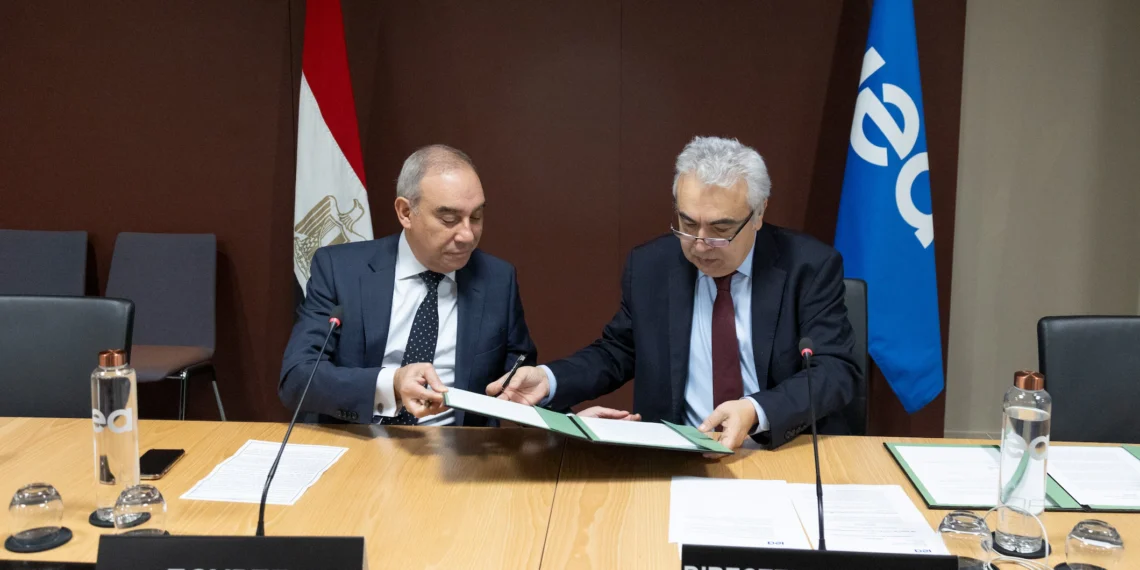The IEA and Egypt signed their first-ever joint work programme, to cooperate closely across key strategic issues including tackling methane emissions from fossil fuel use, renewable energy deployment and hydrogen production, they said in a statement.
The agreement was signed at the IEA’s Paris headquarters following a meeting between IEA Executive Director Fatih Birol, Egypt’s Minister for Petroleum and Mineral Resources Tarek El-Molla and Egypt’s Ambassador to France Alaa Youssef.
“I am delighted that we will now step-up our cooperation with Egypt, an important member of the IEA Family, on crucial energy security and climate issues,” Dr Birol said. “We are eager to take forward new areas of cooperation with Egypt as the country accelerates its energy transition while ensuring supplies remain affordable and reliable.”
Minister El-Molla and Dr Birol first explored pathways to deepen institutional ties after Egypt joined the IEA as an Association country in February 2022, which makes this two-year joint work programme focus on short- and long-term energy priorities for Egypt, with an emphasis on clean energy transitions, energy security and climate resilience. They will be working on emissions abatement in oil and gas activities, hydrogen, renewables, and collaboration on data and statistics.
“The world is now looking for security, affordability and sustainability of energy supplies. As a producer and exporter of natural gas as the cleanest hydrocarbon fuel, Egypt is also well positioned to play a key role in the global energy transition through renewables. We look forward to collaborate as an active association member with the IEA to capitalise on its knowledge and expertise to support the road towards a just and orderly energy transition,” said Minister El-Molla.
The priorities set out in the programme underscore Egypt’s commitment to reducing its emissions, with the country having also recently joined the Global Methane Pledge and endorsed the Zero Routine Flaring by 2030 Initiative, said IEA.





